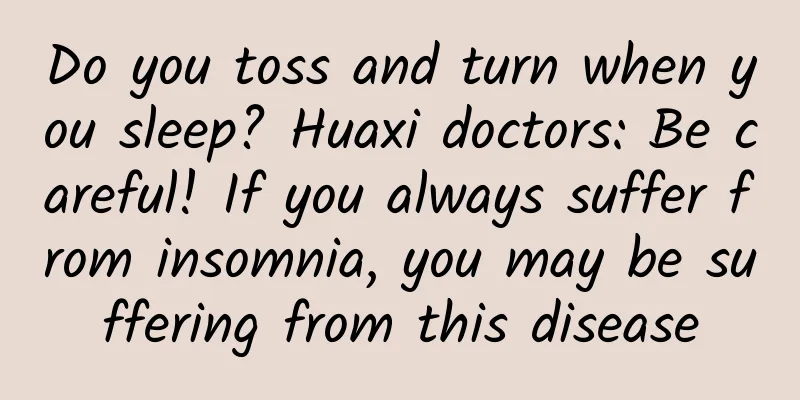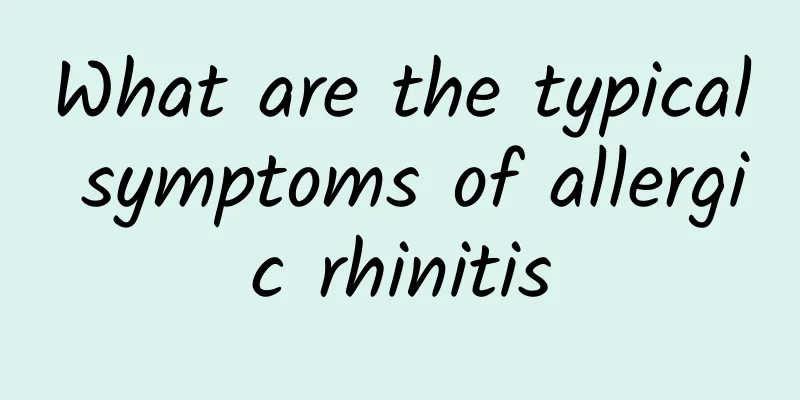A "minor illness" like cough is not as simple as you think!

|
Author: Fang Baomin, Chief Physician, Beijing Hospital Reviewer: He Quanying, Chief Physician, Peking University People's Hospital There are three things that people cannot hide: cough, poverty and love. The more you try to hide them, the more obvious they become. ——Lolita As a popular medical science article, today we will talk about the "cough" that cannot be concealed. In daily life, if the cough is not serious, everyone will think that it will go away if you just bear with it. Even if the cough is more serious, some patients will think that this "minor illness" can be treated by buying some cough medicine, and there is no need to go to the hospital or find out the cause. Is this really the case? 1. What are the causes of cough? Cough is very common in clinical practice. According to statistics, among patients in the respiratory department, 30 to 40 percent of them seek medical treatment with cough as the first symptom. There are many reasons for coughing. First, respiratory tract infection, such as viral infection, bacterial infection, and some special pathogens, such as parasitic infection, can cause coughing. Respiratory tract infection is the main cause of coughing. Figure 1 Original copyright image, no permission to reprint Second, asthma. Asthma is caused by external inhaled substances irritating the airways, causing high reactivity of the airways. The cough it causes is often very severe. Third, food allergies, especially allergies to seafood. Some patients are allergic to rice and eggs, which can also cause coughing. Fourth, side effects of drugs, especially anti-hypertensive drugs, such as captopril, and some drugs for treating arrhythmias, such as propranolol hydrochloride, can sometimes induce coughing. Fifth, mental factors can cause bronchospasm and induce coughing under particularly stressful circumstances. Sixth, exercise. Some children or adults will cough severely after exercise, which may be due to exercise-induced bronchial spasm. Seventh, some secretions from the upper respiratory tract may choke into the trachea, which may also cause coughing, especially if you have rhinitis, runny nose, sneezing, secretions in the throat, or if the elderly have more oral secretions, which may be inhaled into the trachea and cause coughing. The eighth is that due to poor gastrointestinal function, food or gastric acid refluxes into the pharynx, passes through the glottis, and is inhaled into the trachea, which can also cause coughing. Another part of patients suffer from airway diseases, such as bronchial tuberculosis, bronchiectasis, pneumonia, etc., which are all causes of cough. 2. How to treat cough? Do you need to use cough medicine? If it is a mild, occasional cough with an obvious trigger, and the cough stops quickly once the trigger is eliminated, no medication is needed in this case. If it is a long-term, severe cough, you must seek treatment, but the prerequisite for seeking treatment is to find out the cause and then treat the cause. This is the first step. The second is to take symptomatic treatment. There are many kinds of antitussive drugs for cough. Some of them work by inhibiting the central nervous system, while others work by inhibiting the various pathways of the cough reflex. We need to remind everyone that if it is a dry cough, we can use some cough suppressants. If there is a lot of sputum, cough suppressants are generally not needed. Because coughing is a protective measure, it can expel airway secretions, foreign objects, etc. If antitussive drugs are used to suppress cough, sputum cannot be coughed out and may worsen the condition. 3. Under what circumstances is it necessary to take anti-inflammatory drugs for cough? What we usually call anti-inflammatory drugs actually refer to antibiotics. Whether to use them or not depends on the specific cause of the cough. If the cough is caused by bacterial infection, antibiotics should be used. If the cough is caused by viral infection, in principle, antibiotics should not be used. For example, if a common cold is caused by a viral infection, with only a sore throat, a runny nose, sneezing, and a low white blood cell count, antibiotics are ineffective in this case. We only need to use antibiotics if we determine that there is a bacterial infection. Of course, as we mentioned earlier, there are many other reasons that can cause coughing, such as asthma, food allergies, side effects of drugs, etc. Patients like these should not use antibiotics. Therefore, if you have a cough, do not blindly use antibiotics. You should actively find out the cause and then choose the medication based on the actual situation. 4. What are the serious consequences of long-term severe coughing? As for coughing itself, it is a self-protection measure of our body, but long-term and severe coughing can cause more serious consequences. The first is hemoptysis. Severe coughing may cause rupture of small blood vessels on the bronchial mucosa, which can cause hemoptysis. The second is syncope. Some patients have a particularly severe cough that can cause them to faint. Although they may wake up in a few seconds after fainting, they may be seriously injured during the fainting process, which should also be noted. In addition, some elderly people with underlying lung diseases, such as chronic obstructive pulmonary disease, may develop pneumothorax and sudden shortness of breath. This situation, as an acute symptom, should attract our attention. Some patients may also experience hoarseness or even sore throat. At the same time, coughing itself will cause increased mental stress, poor rest, etc., which will have a certain impact on our normal life. Therefore, coughing is not as simple as we think. We must seek medical attention in time and not take medicine blindly. |
<<: High fever, cough, and yellow sputum, beware of lung abscess!
>>: If you feel suffocated as soon as you move into a new house, be careful of ghosts!
Recommend
Why is a woman's right hand swollen?
In daily life, peeling of women's hands is mo...
How to eat yacon better? The nutritional value of yacon
Yacon tastes like pears and is loved by people be...
What is there to do in Zoige? What is the temperature in Zoige County?
Summer is the golden season for grasslands. There...
Can I have sex right after my period ends?
Papa means making love. We say that sex is the sp...
What is the reason for leucorrhea with blood after menstruation?
For female friends who experience bloody leucorrh...
Can I masturbate during late pregnancy?
After a woman becomes pregnant, her body often un...
Medical Biotechnology | A vaccine that only requires one shot - adenovirus vector vaccine for COVID-19
The recombinant COVID-19 vaccine (adenovirus vect...
Can I get pregnant after taking an anti-inflammatory injection?
Women should pay attention to the pregnancy proce...
The reason why the gestational sac was not seen during medical abortion
Medical abortion is a way that many women now cho...
What does high progesterone in early pregnancy mean?
Pregnant women often have their progesterone chec...
The fastest way to naturally enlarge your breasts
Breast augmentation is an essential topic that wo...
What kind of dishes and chopsticks are suitable for high-temperature disinfection cabinets? Do I need to dry the dishes in the disinfection cabinet?
The use of disinfection cabinets is becoming more...
Bulimia nervosa: The psychological dilemma behind delicious food
Author: Chen Han, Chief Physician, Shanghai Menta...
What should girls eat to treat dampness?
There is an old saying: "It is easy to get r...
Don't neglect the elderly's nighttime health care
People over 65 years old often suffer from chroni...









